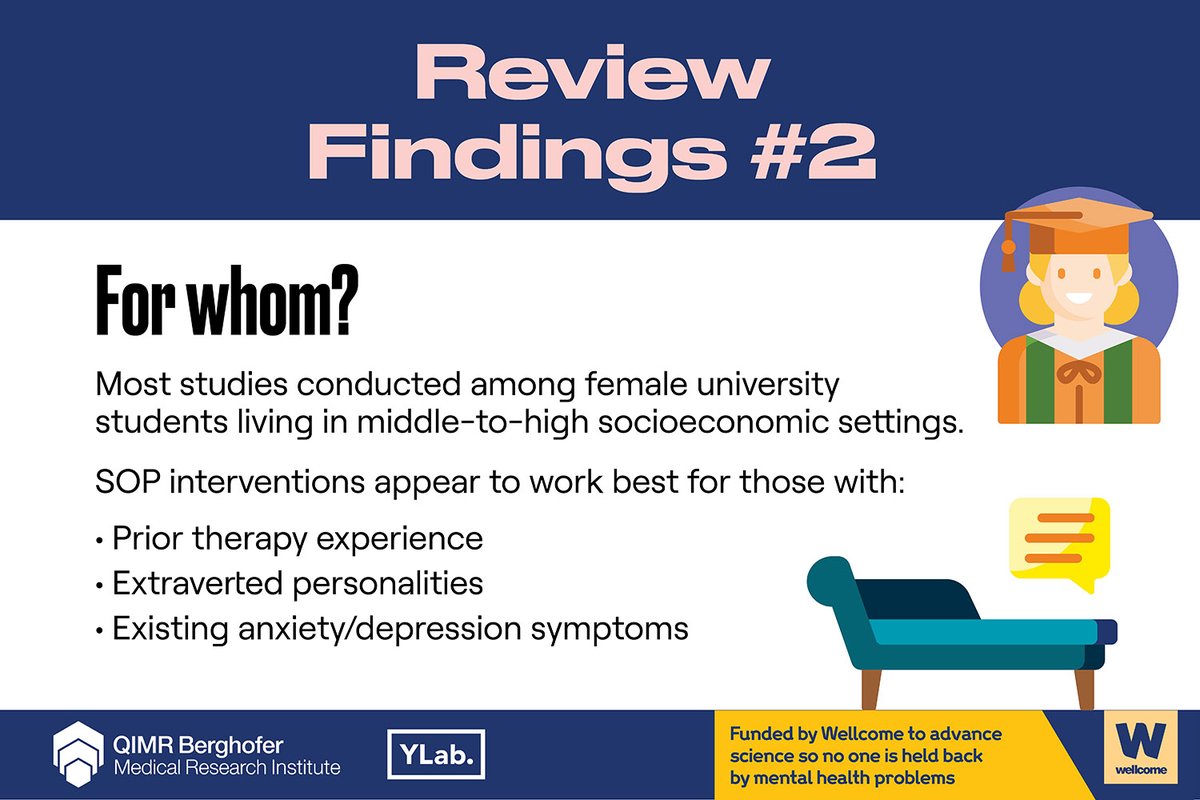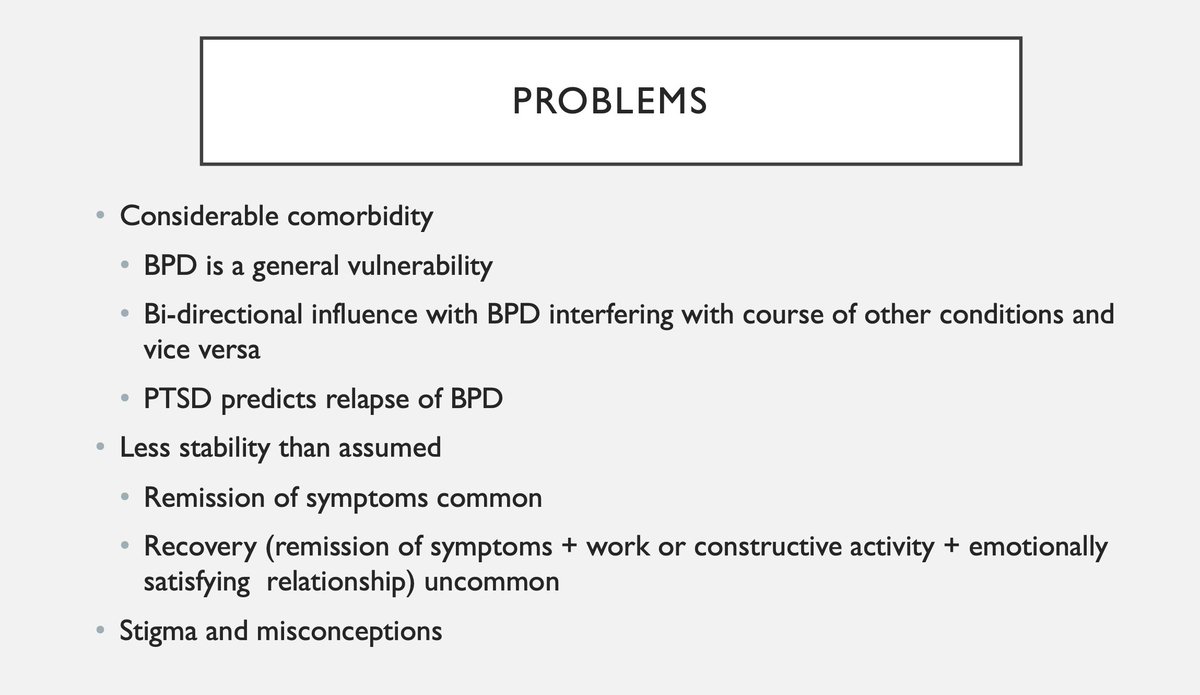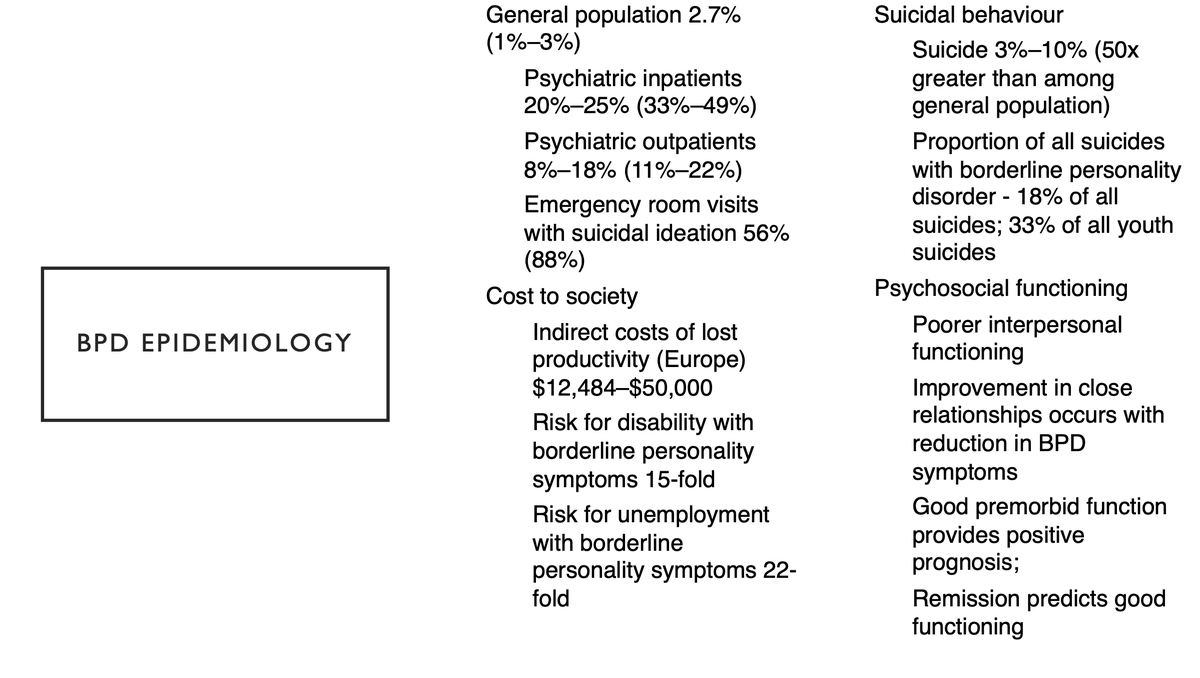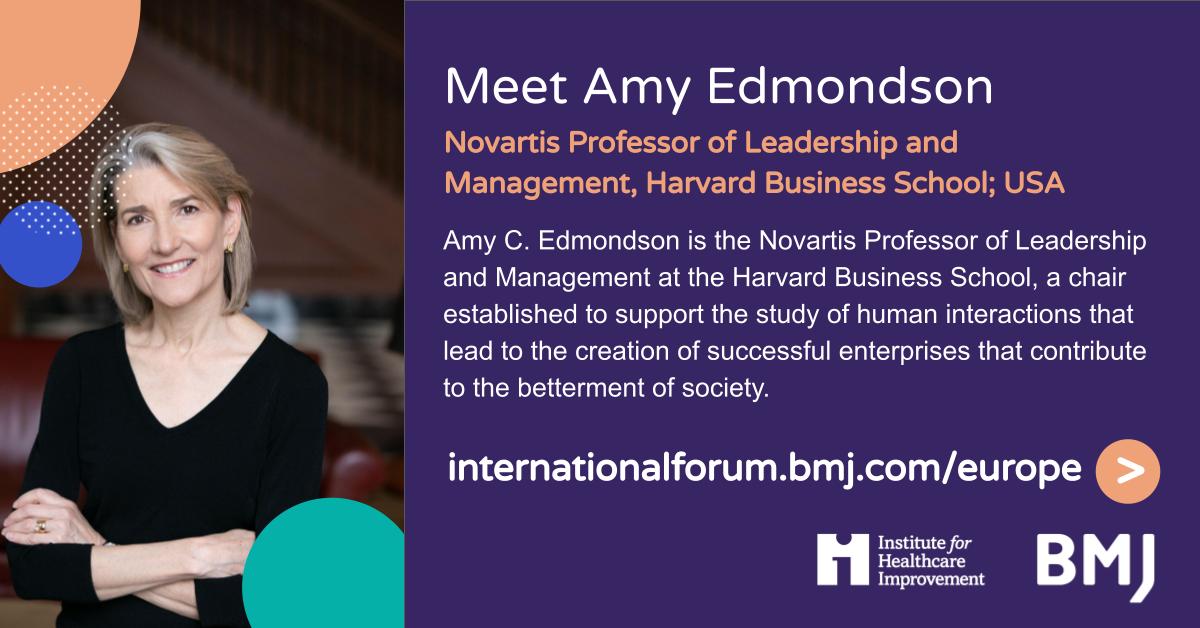Have you ever wondered...
What's my purpose and what impact does it have on my mental health?
Great new #ActiveIngredientsMH video from @EmilyHielscher @CrandonTara @MartinaMcGr @JulieBlakeEpi @QIMRBerghofer @SRFmentalhealth
What's my purpose and what impact does it have on my mental health?
Great new #ActiveIngredientsMH video from @EmilyHielscher @CrandonTara @MartinaMcGr @JulieBlakeEpi @QIMRBerghofer @SRFmentalhealth
Sense of purpose is defined as the extent to which people see their lives having meaning, a sense of direction, and goals
#ActiveIngredientsMH
#ActiveIngredientsMH

This #ActiveIngredientsMH review asked: Does fostering sense of purpose (SOP) reduce symptoms of anxiety and depression? 

The proposed mechanism here is that having a sense of purpose in life might reduce feelings of dread and increase direction in life, self-confidence, motivation and confidence #ActiveIngredientsMH 

This @wellcometrust funded systematic review included a huge search of the international literature to find the best available evidence to answer the question. The reviewers worked with a youth advisory group with lived experience experts, plus two other international experts 

They found that most sense of purpose interventions target several components (e.g. values, goals, gratitude) rather than individual components #ActiveIngredientsMH 

Most studies included female university students in middle to high socioeconomic settings.
They found that sense of purpose interventions work best for those with prior therapy experience, extraverted personalities & existing anxiety/depression symptoms
#ActiveIngredientsMH
They found that sense of purpose interventions work best for those with prior therapy experience, extraverted personalities & existing anxiety/depression symptoms
#ActiveIngredientsMH

Group interventions seemed most acceptable, as were those delivered by a lay person of similar age and background.
Some youth advisory experts expressed concerns about the cultural appropriateness of interventions.
#ActiveIngredientsMH
Some youth advisory experts expressed concerns about the cultural appropriateness of interventions.
#ActiveIngredientsMH

This review suggests that fostering sense of purpose can lead to better psychological wellbeing, but we need more evidence to understand how this can help with youth anxiety/depression, and we need to explore non-western approaches much more.
#ActiveIngredientsMH
#ActiveIngredientsMH

Tailored interventions may be useful.
We need to coproduce future research much more by involving lived experience experts as codesigners of interventions.
It's vital that future research includes a more diverse range of participants, so we know what works for whom & why.
We need to coproduce future research much more by involving lived experience experts as codesigners of interventions.
It's vital that future research includes a more diverse range of participants, so we know what works for whom & why.

Thanks to @EmilyHielscher @CrandonTara @MartinaMcGr @JulieBlakeEpi @QIMRBerghofer @SRFmentalhealth for conducting this important research!
What do you think? Tweet your ideas about sense of purpose and youth mental health to #ActiveIngredientsMH
What do you think? Tweet your ideas about sense of purpose and youth mental health to #ActiveIngredientsMH
• • •
Missing some Tweet in this thread? You can try to
force a refresh











